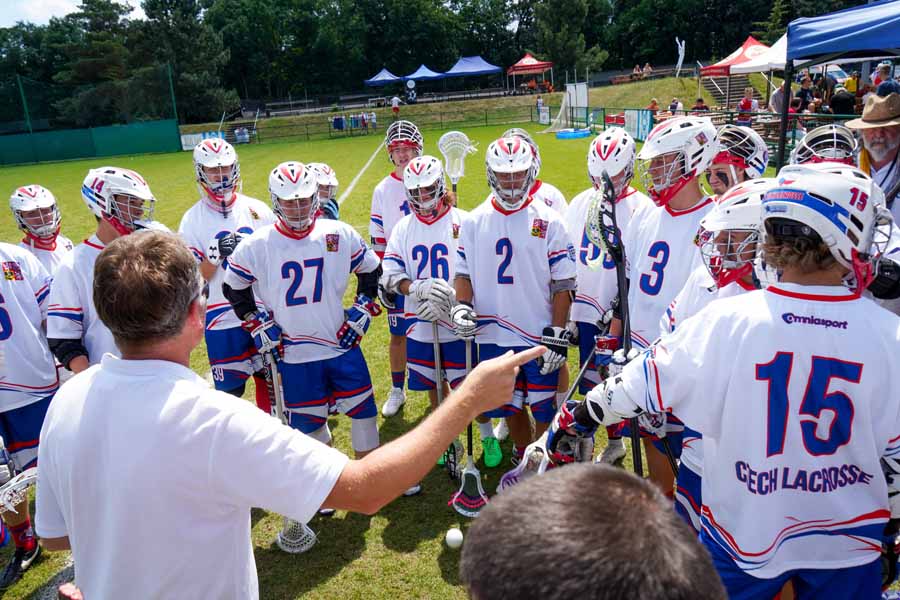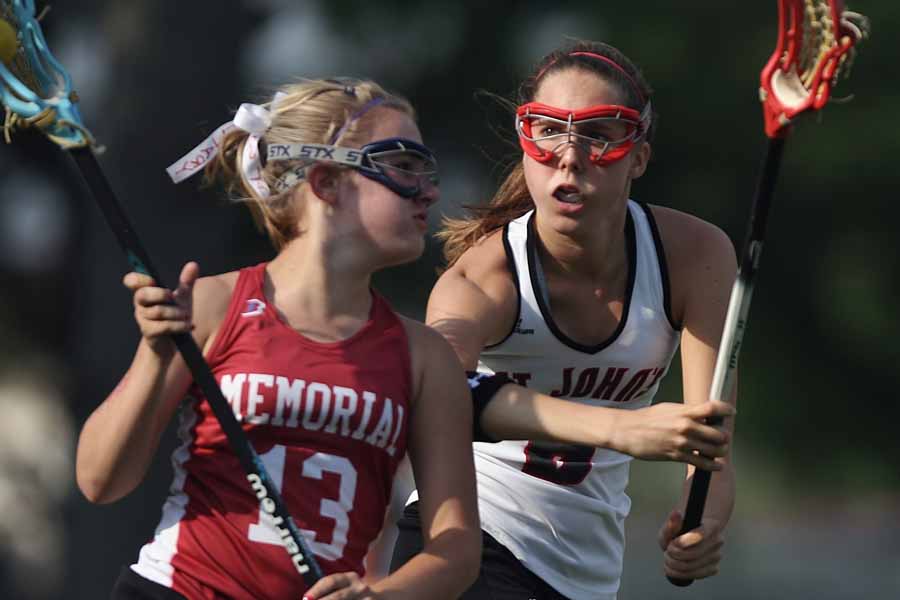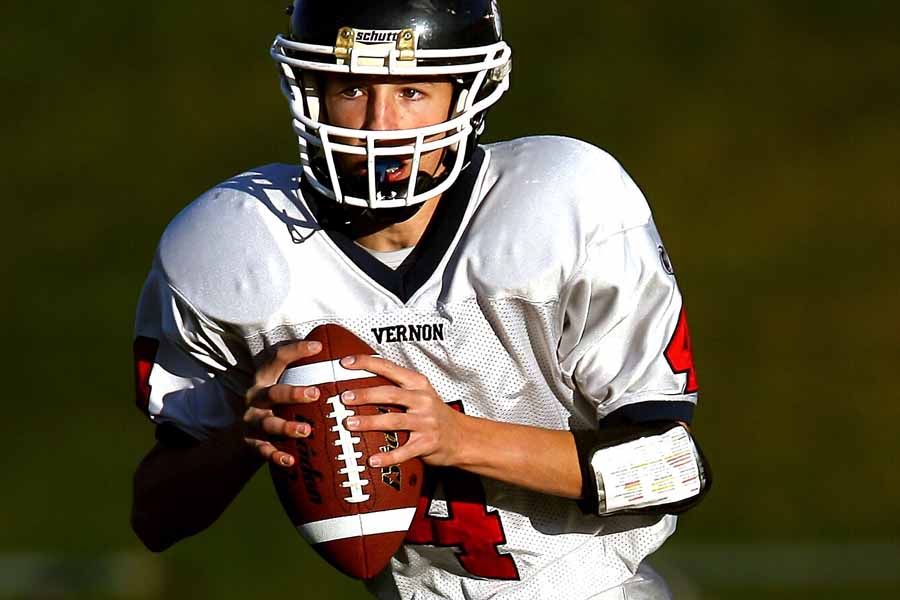:: FOCUS ON FUNDAMENTALS… within your sport and become a master of those! Don’t waste time worrying about the recruiting process, focus all of your energy on being the best player that you can be. If you are a top player, make sure you work on becoming a great leader and teammate—these are qualities coaches are looking for in addition to size and skill! The better you play and the more games your team wins, the better your odds are of being discovered! Put 100% effort into your fundamentals!
:: IF SENT A QUESTIONNAIRE BY THE SCHOOL… fill it out and return it promptly! It is a sign of interest, RESPOND!
:: BE ON TRACK ACADEMICALLY… Sit down with your guidance counselor to make sure your course load is in line with NCAA (Division I and Division II) and university requirements. If you are aiming to attend an academically prestigious university, see what their typical freshman academic profile is. Yes, some schools are able to make exceptions in admissions for student-athletes, but many have a limited number of spots for the entire athletic department to use. Many universities do not have much wiggle room academically between the general student population and student-athletes. Be prepared!
:: MAKE ARRANGEMENTS TO TAKE THE ACT OR SAT TEST – it is MANDATORY! Check with your coach or guidance counselor, there are NCAA standards (and different standards at each university) that must be met with your GPA and your ACT/SAT test scores. If you are financially unable to afford the ACT/SAT tests, check with your coach or guidance counselor for a financial waiver! Most schools REQUIRE a copy of your ACT/SAT/PSAT scores before allowing you to make an official visit.
:: MAKE SURE YOUR GRADES EXCEED THE ‘NCAA SLIDING SCALE’ STANDARDS
– Division I signees need to qualify academically based on their Core GPA and ACT/SAT test scores. Division II requires even higher SAT/ACT minimums. Even if you dream is to go Division I, have the grades to qualify for Division II as well, you don’t want to miss out on all of those additional scholarship opportunities.
Additionally, each university sets their own student-athlete academic standards which may be even higher than the NCAA Division I or Division II standards.
:: REGISTER FOR THE NCAA CLEARINGHOUSE – All prospective student-athletes MUST register with the NCAA Eligibility Center (www.EligibilityCenter.org) in order to practice, play and receive a Division I or Division II athletic scholarship. The NCAA Eligibility Center oversees the certification process to confirm academic credentials and amateurism status. The NCAA Eligibility Center determines if players are ruled eligible, and able to compete and accept a scholarship. High school students can register with the NCAA Eligibility Center at any time but it is recommended that you begin the process during your junior year. Prospective student-athletes must submit transcripts from all schools attended, report SAT/ACT scores directly from the testing agency (use code 9999 when registering for the tests to have your scores sent) and submit the $80 fee. The Eligibility Center confirms that #1- you have graduated, #2- have completed the required number of core courses (varies depending on Division I or II and graduation year), #3- earned a minimum GPA, #4- earned a qualifying SAT/ACT score and #5- completed an amateurism questionnaire and #6- have requested final amateurism certification.
:: ATTEND SUMMER CAMPS OR CLINICS… at schools that you are interested in and combines managed by third-parties (AAU, Nike, etc). Any regional or national tournaments or exposure events you can attend will be helpful.
:: YOU MAY BEGIN RECEIVING MAIL… cards, letters, emails and information on the university and program. If you begin to receive this information from schools it means you are on their watch list and they need more information on you and to see you play, either in person or on video before they can determine if you are a candidate for a scholarship. The date when schools may begin contacting you varies by sport, check NCAA.org for more info. (Low-High Interest From Coaches)
:: IN-PERSON VISITS… If you are a priority recruit, coaches will come to your school as NCAA periods allow – they will watch practice, meet with your coach and show their face around school to let you know they’re interested. As a junior, a college coach may not make in-person contact (speak) with you off their campus but may make academic or athletic evaluations. (MEDIUM/HIGH Interest From Coach)
:: REQUEST TRANSCRIPT… If interested, coaches may request a copy of your transcript from your coach or guidance counselor to determine if you would be able to pass their academic standards (university and athletic department standards). Coaches are actively recruiting several players and don’t want to waste a lot of time if they know you would not be able to get admitted into their university or fit their basic standards. Many athletic departments have academic advisors who evaluate your current grades and make projections on how you will finish high school. They may recommend terminating your recruitment if they don’t believe you can qualify or believe that you can be successful there. (MEDIUM/HIGH Interest From Coach)
:: ASKING AROUND ABOUT YOU… Coaches may call around to find out more about what your decision factors are, talent level, how you compete vs. local players and if there are red flags concerning your character or academic standing. They will call everyone to get a better picture of you as a player, student and person— your HS coaches, AAU coach, parents, prep coaches in your region or conference, guidance counselor, mentors, brothers, sisters or even other college coaches. (HIGH INTEREST)
:: MONITORING YOUR SOCIAL MEDIA… Coaches will likely be checking out your social media pages to find out more about you, what other schools you are visiting or being offered by and your thoughts on the process. Many coaches also use social media as the quickest way to communicate with you. Be aware they take into consideration your language, attitude and how you carry yourself. Nearly every coach I know has eliminated players from their watch list because of negativity from their Facebook or Twitter accounts. (HIGH INTEREST)
:: EVALUATIONS & CONTACTS – Each coach is allowed a set number of evaluations and contacts with each prospect per year, beginning the prospect’s junior year. If they are doing their homework on you or are interested, they will attend your games and practices and set up times to visit with your high school coach or guidance counselor. [Basic Definition – Evaluation: Any off-campus activity designed to assess the academic qualifications or athletics ability (during which no contact occurs) of a prospective student-athlete / Contact: Any face-to-face encounter between a prospective student-athlete or the prospective student- athlete’s parents, relatives or legal guardians and an institutional staff member or athletics representative during which any dialogue occurs in excess of an exchange of a greeting.]- (HIGH INTEREST)
:: GET YOU TO CAMPUS… If coaches have developed some interest (not necessarily have made a decision to offer you a scholarship yet), they will try to get you to campus for an unofficial visit (expenses paid by prospect). Some unofficial visits are set up with individual players and are more personalized or others are Junior Days where hundreds of athletes are invited. They want to get to know you better, show you what they have to offer in terms of campus and facilities, give you an opportunity to get to know their players and introduce you to academic programs that you may be interested in. Recruiting is a two-way street so they are getting a read on your interest level and giving you an opportunity to get to know them better to see if they fit your needs. (MEDIUM/HIGH INTEREST)
Coaches may invite you to campus for games. As a prospect, they are able to offer you complimentary admission (via a pass list at the gate) for you and up to two guests. (MEDIUM/HIGH INTEREST)
:: UNDERSTANDING YOUR INTEREST LEVEL… Coaches will be asking you where else you have made unofficial visits to in order to gauge your interest level with their school. They may ask you what you liked or didn’t like about the other schools you are looking at. If you are a rated player, most coaches learn about your unofficial visits on the internet so be prepared that they will ask you about your thoughts on the competition, you haven’t done anything wrong—they just want to figure out your likes and dislikes and selection criteria. (HIGH INTEREST)
:: INFORMATION ON MAJORS YOU ARE INTERESTED IN… If coaches have a high interest in you, they may send you specific information on the academic major that interests you. They want to make sure you and your family know they are interested in you outside of just sports. (HIGH INTEREST)
:: PLAY HARD… Coaches will be evaluating highlight videos, stats, regional all-star teams and rankings of juniors. This is a key year for you as a player! Following your junior season, send your highlight video and Student-Athlete Resume (stats, measurements, accomplishments, awards, grades and contact information) to schools you are interested in via mail or email. (MEDIUM/HIGH INTEREST)
Nearly every school in nearly every sport relies on regional or national scouting services. Universities pay an annual fee for reports from established scouts. Each service normally provides contact info and a short 10-word-or-less description of the athletes’ style of play, and ranks them with a letter or category grade (Division I, II, III, NAIA). These reports are scanned for sizes, speeds, stats and notes from observations and upperclassmen we may not have been aware of. Be aware that there are eyes everywhere—not just the college coaches themselves! (LOW/MID/HIGH LEVEL PLAYERS)
:: SUMMER CAMPS… If you are a recommended player or on their ‘watch list,’ coaches may be personally inviting you to their summer camps or sports clinics. If financially possible, attend those at the universities you are interested in! Camps can be a very important step in the process for both the prospect and the coaching staff. (LOW/MEDIUM/HIGH INTEREST)
:: PHONE CALLS… Depending on your sport, coaches may begin contacting you at some point during or after your junior year. If coaches have a high interest in you, they will likely be calling you the maximum number of times per week or month as allowed by the NCAA for your sport. The NCAA limits them in the number of times they are able to initiate phone calls with you, but you are able to call them as often as you would like. The dates when coaches may begin calling you and the frequency of calls varies by sport and is determined by the NCAA. Check NCAA.org for more info. (MEDIUM/HIGH INTEREST)
:: IN-PERSON CONTACTS… If you have been offered by a school and are a top priority for them, they will go out of their way to express their interest in you by showing up at your games and practices. There are times when coaches are making face-to-face contacts and in-person evaluations at your games to merely show support, understand that their time is very valuable and they are making a commitment to you by being present. (HIGH INTEREST)
:: BUILDING RELATIONSHIPS… Coaches understand that you are likely influenced (sometimes heavily) by your family, friends, coaches and mentors. Along with building a relationship with you, they are often building just as important relationships with those in your circle. If they are making this effort, understand you are a high priority to them. (HIGH INTEREST)
:: COACHES MAY BE TRYING TO UNDERSTAND THE DYNAMICS WITHIN YOUR FAMILY – if you are close-knit, have a need to stay close-to-home or if you are comfortable going away to school in another state. They are evaluating your family situation and the possibility of you realistically choosing their school. (HIGH INTEREST)
:: IF YOU HAVE ACADEMIC, ATTITUDE OR CHARACTER RED-FLAGS… coaches are constantly evaluating the risk-reward during recruitment. Are you worth the trouble based on your past actions, and are you making improvements in those areas and maturing? Are you worth the risk to them or are there other players just as talented who have zero red flags? (MEDIUM/HIGH INTEREST)
JUNIOR YEAR – GET AHEAD BY…
:: START CONTACTING SCHOOLS ON YOUR OWN… If you haven’t gotten much interest by the end of your junior year, you should start contacting schools on your own. Don’t panic- you still have PLENTY of time! It is best to start with local or state schools (even if those aren’t your first choice) and build interest instead of starting at the FBS Top 25 programs. Send your highlights, stats, awards, accomplishments and contact information to schools within an hour or two and follow-up within a week with someone personally on the phone. Find out which coach on staff recruits your geographic region or position—your overall goal is to get your highlight video in their hands and to get them to watch it and give you feedback. Since most schools first question to you will be “Who have you been offered by?” – it is easier to begin generating interest or offers from local or smaller schools than by contacting national Top 25 teams.
:: SET UP UNOFFICIAL VISITS AFTER YOUR SEASON… If you fit the athletic standards of a school, your junior year is a good time to take as many unofficial visits as possible to the schools that you are seriously interested in. Financially, it may not be an option but if it is, the only way to really decide if you like a school or program is to visit it in person. In several regions, you are able to visit many universities and colleges within a manageable drive. The quantity of schools that you visit isn’t important, but rather the quality of programs that fit your needs and skill level. You may not like them in person or your interest may double or triple after making a visit. Definitely get in touch with the recruiting coach before your visit and tell them you would like to check out the campus and try to set up a meeting in advance if possible.



